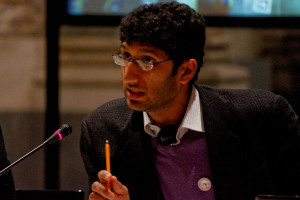 The BMJ has published some recent statistics that are more than a bit disconcerting.
The BMJ has published some recent statistics that are more than a bit disconcerting.
The first set regard corruption. Surely hard to measure, but “best estimates are that between 10% and 25% of global spend on public procurement of health is lost through corruption,” Anita Jain, Samiran Nundy, and Kamran Abbasi write in an Editorial. In the US, the figure is $82 billion to $272 billion. Even the low end of this estimate is an enormous sum.
It would be nice if a few bad apples were driving the bulk of this corruption, but Jain and colleagues suggest that the problem is at least partly structural. In India, for example, “the payment of bribes or use of influential connections . . . has become ingrained in people’s attitudes.” They call for an international fight against kickbacks.
The second troubling statistic is a ranking.
In 2013, the Bill & Melinda Gates Foundation was the largest financial contributor to the World Health Organization’s budget, explains Devi Sridhar, a population health researcher and lecturer, in The BMJ‘s talk medicine Podcast. I had to rewind to make sure I heard that right. But I had. In 2013, the Bill & Melinda Gates Foundation contributed more to WHO’s total budget than any member state.
Perhaps I shouldn’t be surprised. It is a bit like the recent statistic that Apple and Microsoft both have larger cash reserves than the UK and many other nation states.
But we are talking about the World Health Organization here, and if not surprised, then I should at least be alarmed as I am certain that sometime during my elementary school education I was taught that the United Nations and its agencies were about the agenda of nation states. Yes, some states were more powerful than others, but it was still about nation states.
Sridhar goes on to explain that only a small percentage—she says 8%—of the funds are being given in a flexible way, meaning that the vast majority of WHO’s funds may be earmarked by donors. Herein lies the real problem.
“It looks [like] an international institution, but it’s actually being used to achieve individual government or small group goals, or the Gates Foundation goals, while giving the appearance and branding of being the WHO,” Sridhar says.
Is this reason enough to give up on WHO? In their Analysis article, Sridhar, along with Harvard School of Public Health dean Julio Frenk, Georgetown University ethicist Larry Gostin, and Harvard lecturer Suerie Moon, stress WHO’s “unique political legitimacy,” and argue for increasing WHO’s core budget. “WHO is the only international agency that can broker global rules that protect the health of all, but is badly underfunded to perform this core function.”
Meanwhile on bmj.com, with 30 rapid responses posted, debate remains hot over whether evidence based medicine is in crisis. Also in steady stream, are readers’ criticisms of a recent Research article on the nature and direction of association between decade old FDA warnings about antidepressants and suicidal behavior.
Peter Doshi is an associate editor for The BMJ.
